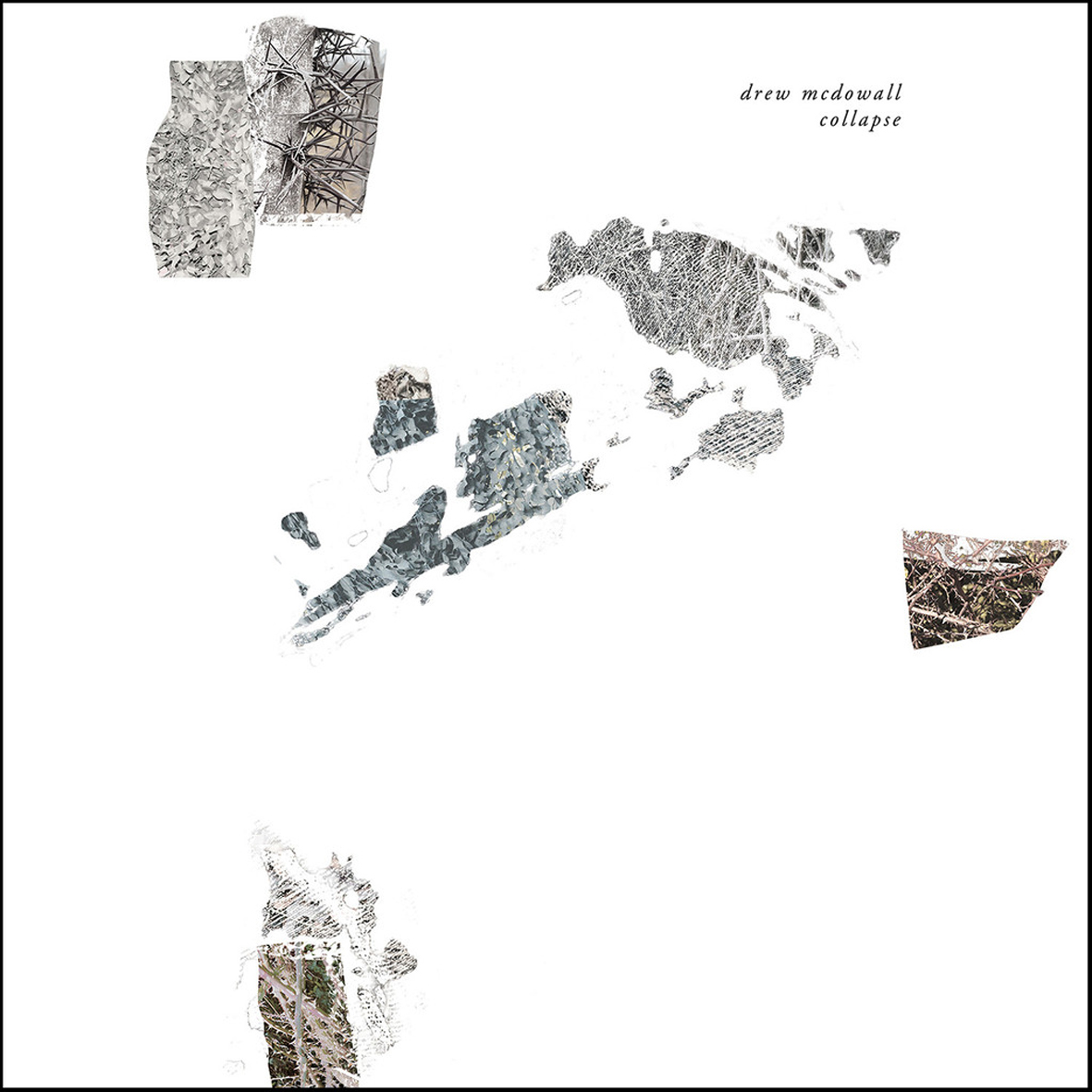 Somehow Drew McDowall has managed to be involved with the most interesting fringes of electronic and experimental music for over three decades without ever stepping into the spotlight himself, most notably working with Psychic TV during their ‘80s heyday and teaming up with Coil throughout the '90s.  Lately, he has mostly been quietly focusing on occasional remixes and soundtrack work, though he intermittently records as half of modular synth duo Compound Eye.  Collapse is a bit of modular synth album too, but it sounds almost nothing like Compound Eye.  Instead, it intermittently sounds like a great unfinished Coil album (when it does not instead sound like a collage experiment or a modular synth improv session).
Somehow Drew McDowall has managed to be involved with the most interesting fringes of electronic and experimental music for over three decades without ever stepping into the spotlight himself, most notably working with Psychic TV during their ‘80s heyday and teaming up with Coil throughout the '90s.  Lately, he has mostly been quietly focusing on occasional remixes and soundtrack work, though he intermittently records as half of modular synth duo Compound Eye.  Collapse is a bit of modular synth album too, but it sounds almost nothing like Compound Eye.  Instead, it intermittently sounds like a great unfinished Coil album (when it does not instead sound like a collage experiment or a modular synth improv session).
Collapse opens in somewhat counter-intuitive fashion, as three-part "The Chimeric Mesh Withdraws" stretches out for almost 20 minutes and takes quite a while to fully come together: initially, it is just an ominous and amorphous haze of echoing clicks, disjointed piano, and somewhat shrill and nightmarish synth whines.  After about eight minutes, however, McDowall’s floating and seemingly improvisatory hellscape gives way to an eerily buzzing and oscillating synth motif and "Chimeric Mesh" blossoms into a thing of disquieting and alien beauty.  It is also around this time where Coil comparisons become absolutely unavoidable, as the haunting central theme is increasingly buffeted by peripheral electronic flourishes that resemble giant swooping robotic birds of prey.  By the end, it completely makes sense why McDowall wanted to lead off with such a piece, as it is a gloriously sinister, hallucinatory, and weirdly melodic mindfuck.  This is exactly the sort of thing that obsessive Coil fans have unknowingly been waiting for.
The following "Hypnotic Congress" is nearly as stellar, but considerably more condensed, launching immediately into a futuristic and mechanized-sounding pulse that becomes increasingly more textured and substantial.  Around the halfway point, it transforms into something considerably weirder, morphing into a clanging, lurching industrial rhythm beneath a shifting, artificial-sounding vocal sample that sounds like an infernal choir of damned souls.  It is quite a wonderfully menacing and inhuman-sounding piece and a perfect continuation of the momentum started with "Chimeric Mesh."  Unexpectedly, however, the remaining three songs take somewhat diverging paths.
On "Through is Out," McDowall is assisted with some violin from Nicky Mao (Hiro Kone), weaving a considerably warmer and more human-sounding spell.  There is still some mindwarping aberrance to be found though, as McDowall’s synthesizers take on a sickly, strangled sizzle as the piece gradually descends into darker and more melancholy territory.  The brief "Convulse," on the other hand, is basically little more than a collage experiment, as a female voice (or two?) endlessly repeat the phrase "I convulsed" over a wobbly and echo-heavy rhythm.  Later, the closing "Each Surface of Night" takes the album into a considerably more drone-centric direction, largely eschewing anything deviant or nightmarish in favor of a dense, slowly undulating thrum before belatedly perking up into an understated crescendo of twinkling and delay-enhanced minor-key arpeggios.  That makes for an odd and somewhat perverse ending, as the final moments sound like an escalation into a more structured and melodic piece that never comes.
Collapse is a difficult album to form a solid opinion on, as it frequently flirts with greatness while simultaneously highlighting why McDowall has avoided recording a solo album in the past.  The main issue is that Drew seems to be primarily an "idea man," albeit one who has quite an impressive attention to detail and texture (he gets some brilliantly twisted sounds out of his synths).  He is not a particularly great composer though.  Consequently, Collapse is filled with dazzling moments that either never quite make the leap into something more, go on a little too long, or get diluted by somewhat meandering surroundings.  Also, the final three pieces make it feel like McDowall finished a wonderful album, then realized that he needed to find another 15 minutes of material to fill the second half of the record.  They do not exactly feel like filler, but they do feel like experiments or sketches that are not completely in line with the striking, distinctive, and focused one-two punch of "Chimeric Mesh" and "Hypnotic Congress."  I like those two pieces a lot, so I guess that means I like Collapse a lot, as they take up most of the album  And I do like Collapse a lot–it just feels more like a prodigious talent in need of a foil than it does the epic, well-deserved "coming-out party" that it could have been.
 
 
 
Read More

